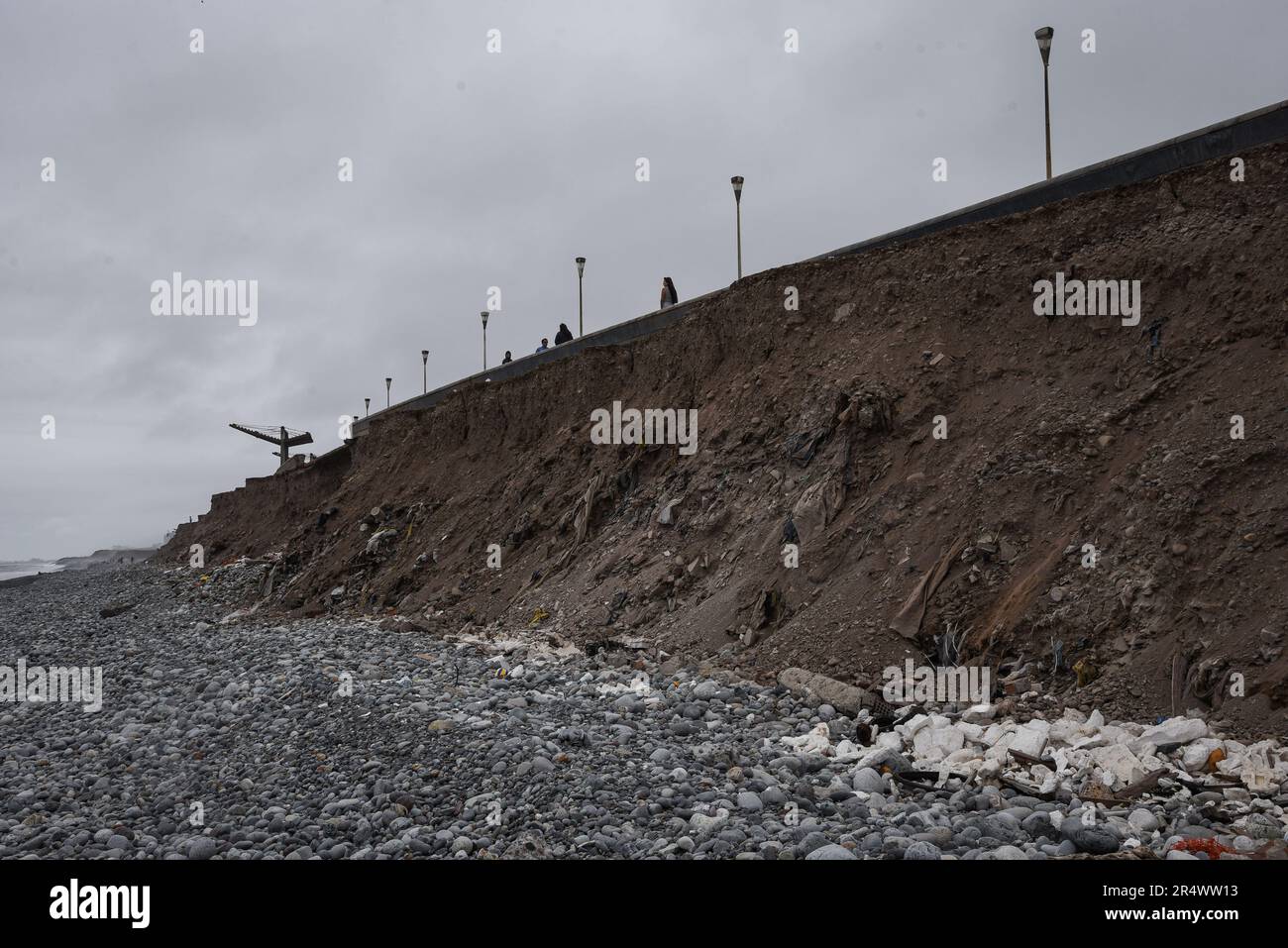Nicolas Remene / Le Pictorium - El Nino phenomenon on the north coast of Peru - 7/10/2018 - Peru / Lima / Lima - Magdalena del Mar, a seaside district in the province of Lima in Peru, on 7 October 2018. Urban development work is trying to gain a little on the Peruvian capital's coastline. Lima, like many coastal towns and villages in the north has to deal regularly with the climatic hazards caused by the periodic alternation of the El Nino and La Nina phenomena. ---------------------------------------- The El Nino phenomenon on the north coast of Peru North of

Image details
Contributor:
LE PICTORIUM / Alamy Stock PhotoImage ID:
2R4WW13File size:
69.1 MB (4 MB Compressed download)Releases:
Model - no | Property - noDo I need a release?Dimensions:
6016 x 4016 px | 50.9 x 34 cm | 20.1 x 13.4 inches | 300dpiDate taken:
7 October 2018Photographer:
Le PictoriumMore information:
This image could have imperfections as it’s either historical or reportage.
Nicolas Remene / Le Pictorium - El Nino phenomenon on the north coast of Peru - 7/10/2018 - Peru / Lima / Lima - Magdalena del Mar, a seaside district in the province of Lima in Peru, on 7 October 2018. Urban development work is trying to gain a little on the Peruvian capital's coastline. Lima, like many coastal towns and villages in the north has to deal regularly with the climatic hazards caused by the periodic alternation of the El Nino and La Nina phenomena. ---------------------------------------- The El Nino phenomenon on the north coast of Peru North of Lima in Peru, along almost 1300 km of coastline, many villages are periodically subjected to the climatic phenomena known as El Nino and La Nina. La Nina occurs more often, but is much less severe. As for El Nino, it recurs every 3 to 7 years. It is the result of disruptions to the oceanic and climatic system in the equatorial Pacific, particularly around the Peruvian and Ecuadorian coasts of South America. This phenomenon, which has a major influence on the world's climate, results in a surge of warm water in the Pacific Ocean and a rise in water levels that can lead to torrential rain, major flooding and landslides. These extreme weather events have had dramatic consequences for many of the villages along the coast. Many of these villages are fishing villages, where small-scale fishing is an essential part of the local economy, but El Nino has tended to warm surface waters, resulting in a reduction in plankton and therefore fish, turning the whole food chain upside down. In recent decades, the El Nino phenomenon has reappeared on several occasions, affecting ecosystems that are already particularly vulnerable to climate change, and causing a migratory flow of fish.